The Modi-Trump Meet
Fatima Naseer and Salma Basheer
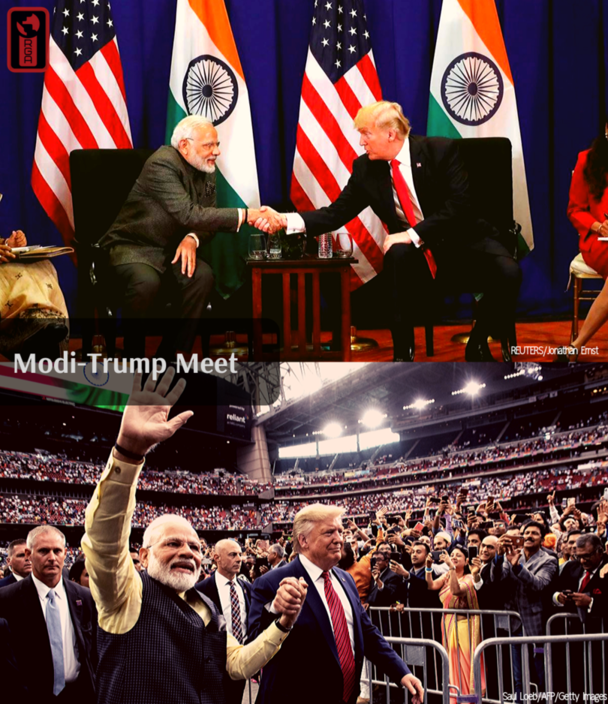
The 74th United Nations General Assembly was an eventful time, especially for India, as it provided the leaders of the largest democracies, President Donald Trump of the United States of America and Prime Minister Narendra Modi of India, with multiple opportunities to interact. The event 'Howdy Modi' held on 22nd September in Houston gave a platform for both the leaders to accept each other as friends and express their mutual admiration in front of the world.
The bilateral meet between Trump and Modi was held in the United Nations Headquarters on 25th September, in side-line to the UNGA session. The meeting was held with the agenda to discuss trade and energy. With the brewing trade war between the two countries and America’s mediating position on the Kashmir issue, the meeting held significance at various levels.
The joint statement of the two leaders proves that the meeting was fruitful. Both the leaders praised each other and their friendship, where PM Modi addressed Trump as ‘a great friend of India’ and Trump called PM Modi ‘the father of India’. Trump also mentioned a possible trade deal between the two countries in the near future.
The leaders were bombarded with questions related to terrorism and Pakistan. Trump had a long meeting with Pakistani Prime Minister Imran Khan before the bilateral meeting with PM Modi, where they had a lot of discussions. Trump believes that PM Modi and PM Khan have the potential to ease the tensions between the two countries. Trump dodged questions about Pakistan’s involvement in sponsoring terrorism by bringing Iran into the picture.
Israel’s New Government
Simran Kothari
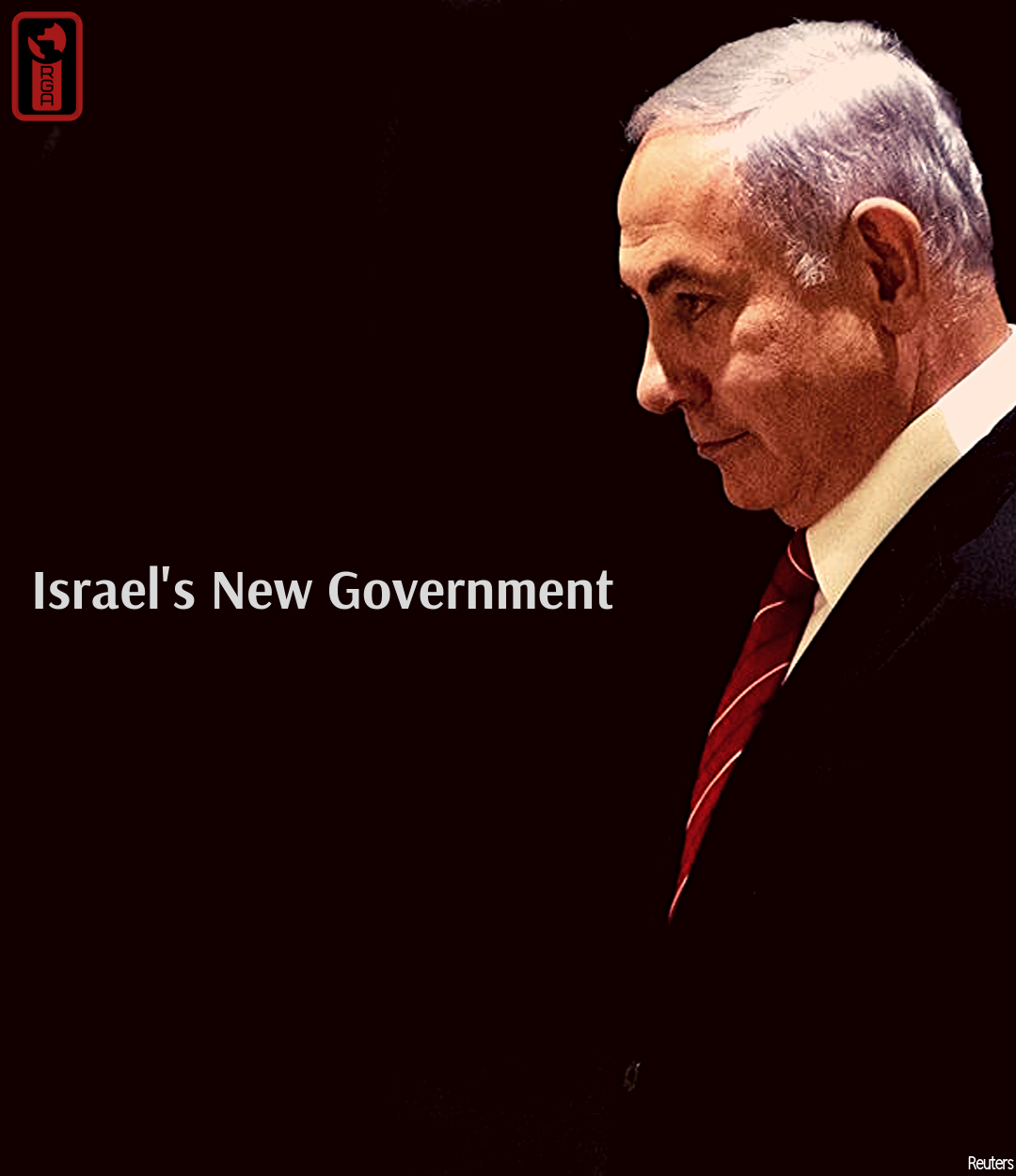
Israeli President Benjamin Netanyahu, after the deadlocked elections last week, declared his office, had commissioned a new government. The announcement was accompanied by a joint meeting between President Reuven Rivlin, Netanyahu, and Premier Benny Gantz. If all efforts do not succeed, then Rivlin can delegate the job to someone else. Netanyahu has 28 days to form a government, with a potential two-week extension. Rivlin called for the establishment of a unity government between Netanyahu and Gantz, but a solution is far off. Gantz's centrist Blue and White had 33 seats ahead of 32 Likuds out of a 120 parliament with final results from 17 September elections. There is no clear path to a coalition majority either. Netanyahu was supported by 55 parliamentarians as Premier after the elections, while Gantz was endorsed by 54. In light of reports of threats from Iran and the announcements of the prompt "peace of the century" peace by US President Donald Trump, Netanyahu demanded the swift establishment of a large unity government, saying "national reconciliation" was necessary. Elise Jacobs, a partner of the Truman National Security Project, said that the President chose Netanyahu for the duty as it made the most sense to him.
Shortly after the announcement Wednesday, Gantz opposed Blue and White party membership of a government led by a Prime Minister facing grave charges against Netanyahu. Far-right Yisrael Beitenu party has been in fence since the elections, leading to disagreements between Likud, Blue and White's political allies, former Defense Secretary Avigdor Lieberman, the potential kingmaker.
Israel's General Attorney will hold a pre-trial hearing next month in three cases of corruption on his stated intention to prosecute Netanyahu on alleged fraud and bribery.
QUAD Meeting
Pranali Deshmukh
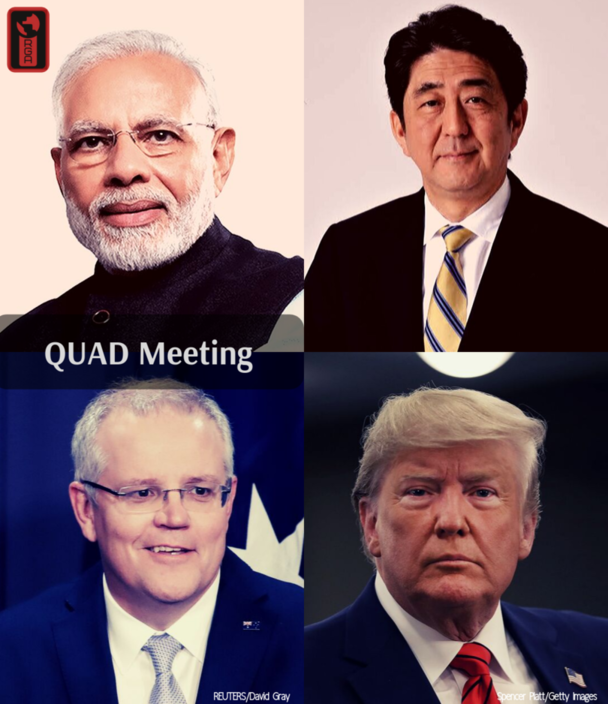
The Quadrilateral security dialogue (also known as QUAD) is an informal strategic dialogue between the United States, Japan, Australia, and India which aims for a free and secure Indo-Pacific region to counter China’s expansionist ‘String of Pearls’ strategy in the region with specific focus on freedom of navigation, maritime security cooperation, joint military exercises. It was formed in 2007, initiated by Japanese Prime Minister Shinzo Abe with the support of the US, Australia, and India.
Since its revival in 2017, QUAD held its first ministerial-level meeting in New York on 26th September 2019. Four of the largest democracies in the Indo-Pacific region have come together in efforts to promote and maintain an open and inclusive Indo-Pacific region at the vanguard of it is the issue of China which is expanding its economic influence, military power and territory in the region. The meeting was attended by US Secretary of State Mike Pompeo, Indian External affairs minister S. Jaishankar, and Foreign ministers Toshimitsu Motegi of Japan and Marie Payne of Australia. Quad has met four times in the past but this meeting was a significant development in the relations between the four partners of Quad as they met to discuss collective efforts in their commitment to counter-terrorism, assistance in disaster relief, airtime security, development, finance, and cybersecurity. Quad is one of the many ways the US and India are cooperating on their shared strategic objectives, India is also leading the end of the Pacific region.
All the members of Quad except Australia are engaged in the Malabar exercises, which was started annually between India and the US, which became trilateral in 1994 with Japan. Exercise Malabar is a trilateral naval exercise involving the United States, Japan, and India as permanent partners.
Crusader at 16, Warrior for Policy Change
Merin Susan Suresh
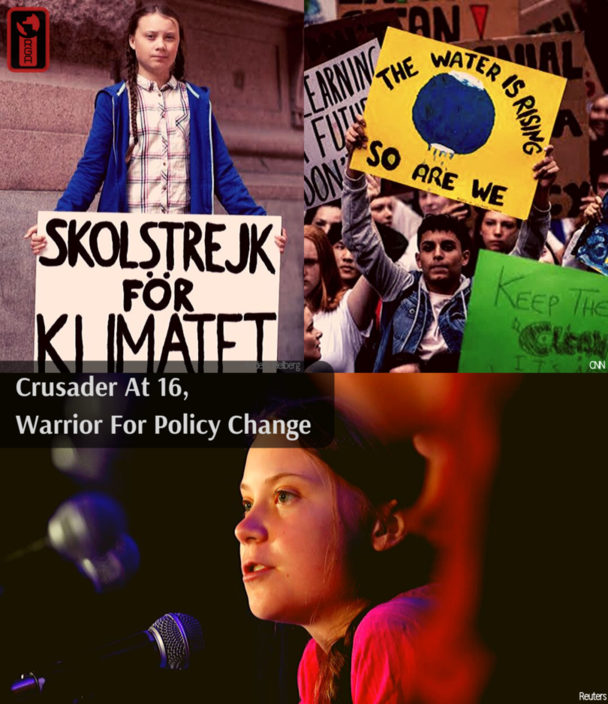
In her pursuit to demand more rigorous efforts on climate change, 16-year old climate activist, Greta Thunberg was able to gather young people and students across the globe to join her at the Global Climate Strike on September 20 and September 27, 2019. The first strike took place against the backdrop of the Climate Action Summit of the United Nations which was held on September 23. The demand is for a complete reduction of fossil fuel, an end to deforestation in the Amazon and transition towards 100% renewable energy.
Big cities or small, developed countries or the developing world, about 7.6 million people came together to protest for climate action. More than 6,000 events were held across 180 countries with support from trade unions, business houses, parents, youth, scientists, all walking towards the same goal. The protests began from New Zealand where about 3.5% of the country’s population took part in the protests. Significant numbers joined the strike from countries like Italy, Canada, Germany and the United States of America.
To call on people all over the world, drawing their attention to a grave situation, the Global Climate Crisis can be traced back to Greta’s first strike on a Friday in August 2018 and her efforts since then, before she became a world-renowned activist. In August 2019, Greta decided that she would not use an airplane but instead used an emission-free sailboat to attend the United Nations Climate Action Summit in New York.
Despite having a huge impact on young people everywhere, Greta finds it difficult to believe that she strives towards climate action picked up momentum to such a large extent. In her moving speech at the 74th United Nations General Assembly, Greta called out on governments and big businesses to take charge against climate change warning everyone that it was time to start worrying.
UNGA Highlights
Omkar Mane
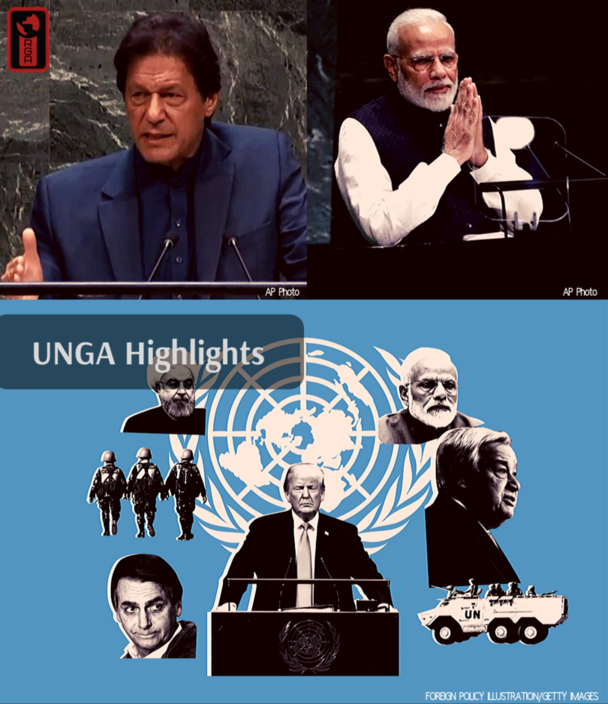
The 74th United Nations General Assembly was held in New York from 17th September to 30th September. This meeting comes at a time when the world is experiencing a spate of tensions between Iran and Saudi Arabia, Iran and the United States of America, the US-China Trade War and a slew of economic slowdown. The UN General Assembly had some key moments which stood out from the rest. Some of these moments were: -
Greta Thunberg and climate change.
Swedish Teenager and Climate Activist Greta Thunberg emerged as a crusader against climate change at the UN Climate Summit, voicing her criticisms and targeting the world leaders for their inability to tackle climate change. Though she gained support for her cause against climate change, many people dismissed the act as “fake” and a mere “publicity stunt”.
Imran Khan and The Bloodbath
Pakistani Prime Minister, Imran Khan, during his speech at UNGA, came up with some rather harsh words while describing the situation of Kashmir, which has been under lockdown since the 5th of August. Speaking on the issue in front of world leaders, he said that there would be a bloodbath when the lockdown is lifted. He also mentioned the possibility of a nuclear war if a situation of conventional war arises between the two neighbours. Another interesting part of the speech was that it was unusually long, lasting for about 50 minutes as opposed to 15-20 minutes.
India’s reply to Pakistan in UNGA
India made its presence felt at the UNGA even more prominently, when it gave a strong reply to Pakistan during the right to reply, calling the speech as a show of brinksmanship and not statesmanship, criticizing it as an overt expression of aggression.
Trump's speech at UNGA
US President Donald Trump faced a shift in American policy when he mentioned how the future belongs to the patriots or the nationalists and not to the globalists. This shows the disregard of globalization and prioritization of the national interests, not only in the USA but in some other countries as well.